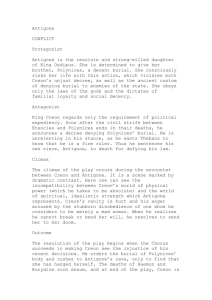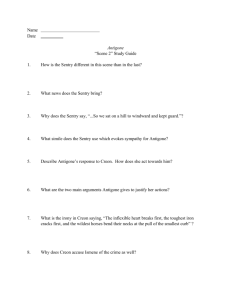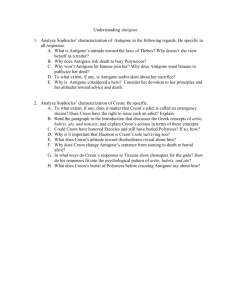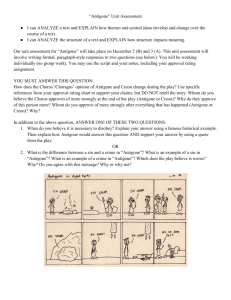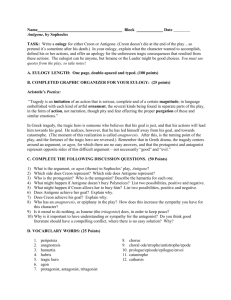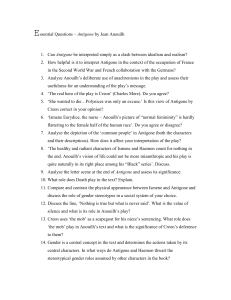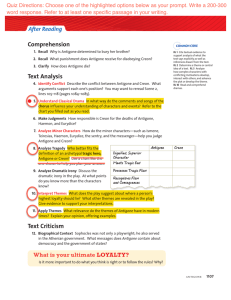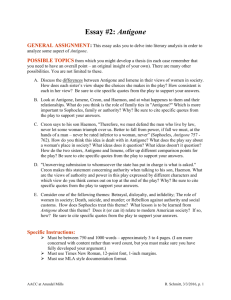AntigoneReview
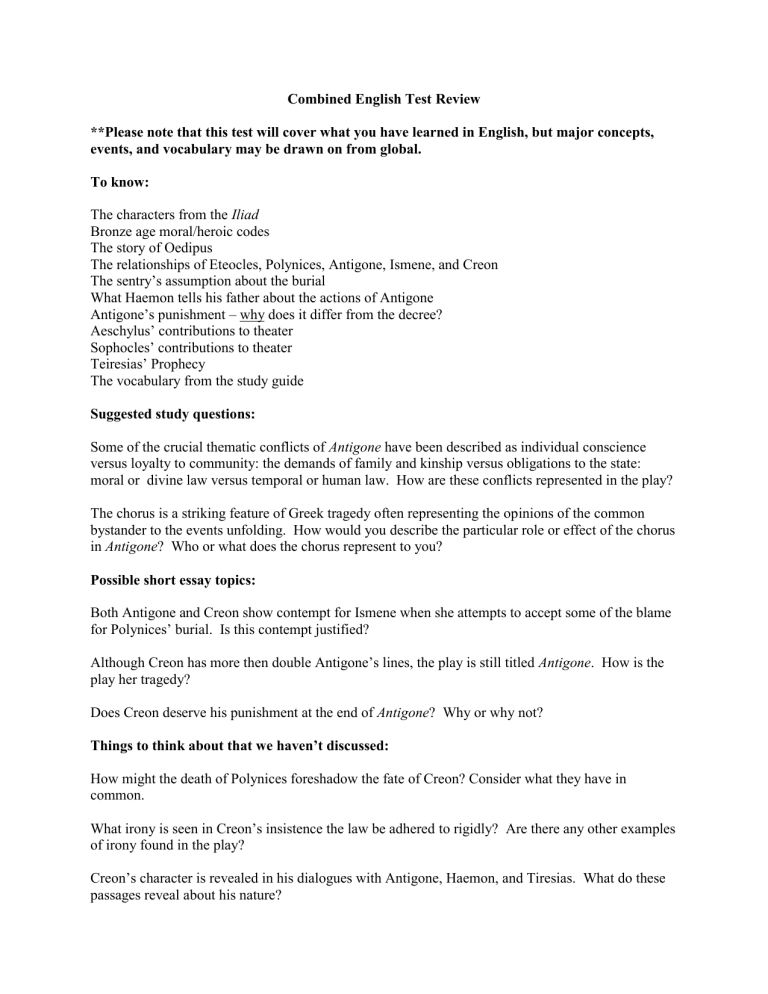
**Please note that this test will cover what you have learned in English, but major concepts, events, and vocabulary may be drawn on from global.
To know:
Combined English Test Review
The characters from the Iliad
Bronze age moral/heroic codes
The story of Oedipus
The relationships of Eteocles, Polynices, Antigone, Ismene, and Creon
The sentry’s assumption about the burial
What Haemon tells his father about the actions of Antigone
Antigone’s punishment – why does it differ from the decree?
Aeschylus’ contributions to theater
Sophocles’ contributions to theater
Teiresias’ Prophecy
The vocabulary from the study guide
Suggested study questions:
Some of the crucial thematic conflicts of Antigone have been described as individual conscience versus loyalty to community: the demands of family and kinship versus obligations to the state: moral or divine law versus temporal or human law. How are these conflicts represented in the play?
The chorus is a striking feature of Greek tragedy often representing the opinions of the common bystander to the events unfolding. How would you describe the particular role or effect of the chorus in Antigone ? Who or what does the chorus represent to you?
Possible short essay topics:
Both Antigone and Creon show contempt for Ismene when she attempts to accept some of the blame for Polynices’ burial. Is this contempt justified?
Although Creon has more then double Antigone’s lines, the play is still titled Antigone . How is the play her tragedy?
Does Creon deserve his punishment at the end of Antigone ? Why or why not?
Things to think about that we haven’t discussed:
How might the death of Polynices foreshadow the fate of Creon? Consider what they have in common.
What irony is seen in Creon’s insistence the law be adhered to rigidly? Are there any other examples of irony found in the play?
Creon’s character is revealed in his dialogues with Antigone, Haemon, and Tiresias. What do these passages reveal about his nature?

